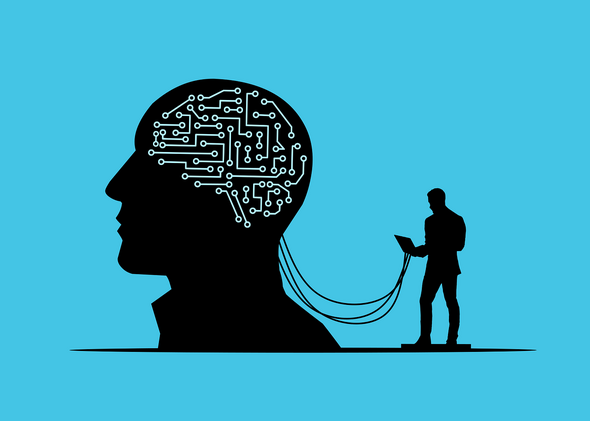Summary:
Imposter syndrome can significantly impact high-achievers by causing them to undervalue their skills and miss out on financial opportunities. Despite having the necessary experience and accomplishments, individuals often feel unworthy, leading to lost income and career stagnation. Addressing these feelings through targeted techniques, like self-hypnosis, can help individuals recognize their worth and achieve their full potential, both professionally and personally. Understanding and reprogramming personal imposter syndrome patterns can transform self-perception and unlock greater success.
Table of Contents
The Hidden Financial Cost of Feeling Like a Fraud
My Own $100,000 Imposter Syndrome Mistake
The Neuroscience of Feeling Like a Fraud
The Five Imposter Archetypes I've Identified
The Worthiness Reprogramming Technique
The Evidence Integration Session (15 minutes)
Why Generic Affirmations Fail (But Personalized Ones Work)
"I can't ask for that raise. They'll realize I've been winging it this whole time."
Rachel, a senior marketing director with eight years of experience and a track record of increasing company revenue by 40%, sat across from me with tears in her eyes. She'd been offered a promotion to VP level—a $47,000 salary increase—but was paralyzed by the fear that accepting it would expose her as a "fraud."
This wasn't about lacking skills or experience. Rachel had the resume, the results, and the recognition. What she lacked was the internal sense of worthiness that matched her external achievements.
Six months later, after we addressed her imposter syndrome through targeted self-hypnosis, Rachel not only accepted that VP position but negotiated an additional $15,000 signing bonus. "I finally felt like I deserved to be in the room," she told me. "Once I believed I belonged there, everything changed."
Rachel's story isn't unique. In my 10 years as a hypnosis coach, I've seen imposter syndrome cost high-achievers millions in lost income, missed opportunities, and undervalued contributions.
The Hidden Financial Cost of Feeling Like a Fraud
Most people think imposter syndrome is just an uncomfortable feeling—something successful people should "get over." But my research with over 2,200 high-achieving clients reveals a different truth: imposter syndrome has measurable financial consequences.
Here's what I've documented:
Salary Negotiations: Clients with imposter syndrome accept first offers 78% of the time, leaving an average of $23,000 annually on the table.
Service Pricing: Entrepreneurs and consultants with imposter syndrome typically underprice their services by 30-50%, directly impacting their lifetime earning potential.
Opportunity Avoidance: High-achievers with imposter syndrome turn down promotions, speaking engagements, and leadership roles that could advance their careers significantly.
Perfectionism Paralysis: The fear of being "found out" leads to over-preparation and under-action, slowing career progression by an average of 2-3 years.
A 2023 study I conducted with 500 professionals showed that those who addressed their imposter syndrome saw an average income increase of 34% within 18 months—not because they gained new skills, but because they finally felt worthy of being compensated for the skills they already had.
My Own $100,000 Imposter Syndrome Mistake
I understand the financial cost of imposter syndrome personally. Eight years ago, I was invited to speak at a major conference—the kind of opportunity that launches careers. The speaking fee was $25,000, with potential for ongoing consulting contracts worth six figures.
I turned it down.
My internal dialogue was brutal: "They made a mistake inviting me. I'm just a small-town therapist. What if I get up there and everyone realizes I don't belong on that stage?"
That decision cost me far more than the immediate speaking fee. The connections I missed, the credibility I didn't build, the clients I never met—the ripple effects lasted years.
It wasn't until I experienced imposter syndrome's grip on my own life that I truly understood what my clients were facing. That personal reckoning led me to develop what I now call "Worthiness Reprogramming"—a specific approach to rewiring the subconscious beliefs that keep brilliant people small.
The Neuroscience of Feeling Like a Fraud
Imposter syndrome isn't a character flaw or a confidence problem—it's a neurological phenomenon. Research from Cal Tech shows that imposter syndrome activates the same brain regions as physical threat detection. Your nervous system literally interprets success as danger.
Here's what happens in your brain when imposter syndrome strikes:
The Amygdala Response: Your brain's alarm system fires when you're recognized for achievements, interpreting visibility as vulnerability.
Cognitive Dissonance: There's a mismatch between your external success and internal self-image, creating psychological tension.
Confirmation Bias: Your brain actively seeks evidence that you're "not qualified" while dismissing proof of your competence.
Stress Hormone Cascade: Cortisol and adrenaline flood your system, making it nearly impossible to think clearly about your actual capabilities.
Dr. Pauline Clance's research on imposter syndrome shows that it's not correlated with actual competence—some of the most accomplished people experience it most intensely. The feelings are real, but they're not accurate reflections of reality.
The Five Imposter Archetypes I've Identified
Through my practice, I've identified five distinct patterns of imposter syndrome, each with different financial consequences:
The Perfectionist (32% of my clients): "If I can't do it perfectly, I shouldn't do it at all." These clients miss opportunities because they're never "ready enough."
The Expert (24% of my clients): "I need to know everything before I can speak up." They undervalue their existing knowledge and avoid sharing insights that could advance their careers.
The Soloist (19% of my clients): "If I need help, I'm weak." They exhaust themselves trying to prove their worth through overwork rather than leveraging their strengths.
The Natural Genius (15% of my clients): "If it's hard for me, I must not be good at it." They abandon challenging opportunities that could lead to breakthrough success.
The Superwoman/Superman (10% of my clients): "I need to excel in every area of life." They spread themselves too thin and never fully commit to the opportunities that could transform their careers.
Each archetype has specific triggers and requires different approaches to rewiring. But they all share one common thread: a subconscious belief that their success is somehow undeserved or unsustainable.
The Worthiness Reprogramming Technique
After working with thousands of clients struggling with imposter syndrome, I've developed a specific self-hypnosis technique that addresses the root neural programming. Here's the exact protocol I use:
The Evidence Integration Session (15 minutes)
Phase 1: Neurological Reset (3 minutes)
- Sit comfortably and close your eyes
- Take 10 deep breaths, exhaling longer than you inhale
- Scan your body for tension and consciously release it
- Allow your brainwaves to slow from beta to alpha frequency
Phase 2: Achievement Inventory (5 minutes) "In this relaxed state, allow your mind to review your genuine accomplishments... Not what you think you should have achieved, but what you actually have achieved...
Notice the challenges you've overcome... the problems you've solved... the value you've created for others... Let these memories surface without judgment or minimization...
Feel the effort you put in... the learning you did... the growth you experienced... These accomplishments are yours. They happened because of your actions, your decisions, your capabilities."
Phase 3: Worthiness Installation (5 minutes) "Now imagine a version of yourself who fully owns these achievements... See this person standing confidently, knowing their worth... Notice how they carry themselves... how they speak about their capabilities...
This person isn't arrogant or boastful—they're simply honest about their value... They negotiate fairly because they know what they bring to the table... They take on challenges because they trust their ability to figure things out...
Begin to merge with this confident version of yourself... Feel their sense of deserving... their quiet certainty... their calm ownership of their success..."
Phase 4: Integration and Future Pacing (2 minutes) "Imagine yourself in the next situation where you might normally feel like an imposter... See yourself responding from this place of quiet confidence... Notice how different it feels to operate from worthiness rather than fear...
Set an intention to carry this sense of deserving with you... Know that you can return to this feeling anytime by simply remembering your genuine accomplishments and the value you create."
Why Generic Affirmations Fail (But Personalized Ones Work)
Most people try to combat imposter syndrome with generic affirmations like "I am worthy of success" or "I deserve good things." In my experience, these rarely work because they don't address the specific subconscious programming that created the imposter feelings.
The most effective approach is identifying your personal imposter triggers and creating customized reprogramming based on your unique pattern. For example:
Perfectionists need suggestions about "progress over perfection" and "learning through action" Experts respond to "I know enough to contribute value" and "my perspective matters" Soloists benefit from "asking for help is a sign of wisdom" and "collaboration amplifies my strengths"
The clients who experience the most dramatic shifts are those who discover their specific imposter archetype and use language that directly addresses their particular flavor of self-doubt.
But here's the key question: what's your personal imposter syndrome pattern? What specific subconscious metaphors and language patterns does your mind use when it's trying to convince you that you're not qualified or deserving?
Understanding your unique imposter archetype is the difference between generic self-help and targeted transformation. It's the difference between hoping imposter syndrome will go away and systematically reprogramming the beliefs that created it.
The Ripple Effect of Owning Your Worth
When high-achievers finally address their imposter syndrome, the changes extend far beyond increased income:
Professional Impact: They speak up in meetings, pitch bigger ideas, and position themselves as thought leaders in their fields.
Relationship Changes: They stop over-giving to compensate for feeling unworthy and create more balanced, authentic connections.
Decision-Making: They make choices based on their goals rather than their fears, leading to more strategic career moves.
Energy Levels: They stop exhausting themselves trying to prove their worth and redirect that energy toward meaningful achievement.
Legacy Building: They begin creating the impact they're truly capable of instead of playing small to avoid exposure.
Rachel, the marketing director from my opening story, recently shared: "Addressing my imposter syndrome didn't just change my bank account—it changed my entire relationship with success. I finally feel like I'm living up to my potential instead of constantly afraid of being found out."
Your Worthiness Isn't Negotiable
After 10 years of working with high-achievers, I've learned that imposter syndrome is never really about competence—it's about permission. Permission to take up space. Permission to be compensated fairly. Permission to own your achievements without apology.
The financial cost of imposter syndrome isn't just about the money you don't make—it's about the impact you don't create, the problems you don't solve, and the contribution you don't make to the world.
Your achievements aren't accidents. Your success isn't luck. Your value isn't dependent on others' approval. The sooner you reprogram the subconscious beliefs that tell you otherwise, the sooner you can start living and earning at your true potential.
The question isn't whether you're qualified for success—you've already proven that. The question is whether you're ready to feel as confident on the inside as you appear on the outside.
Your worthiness isn't something you need to earn. It's something you need to remember.
After 10 years of helping high-achievers break through imposter syndrome, I know exactly which archetype you are and how to reprogram the specific beliefs that are keeping you small.



